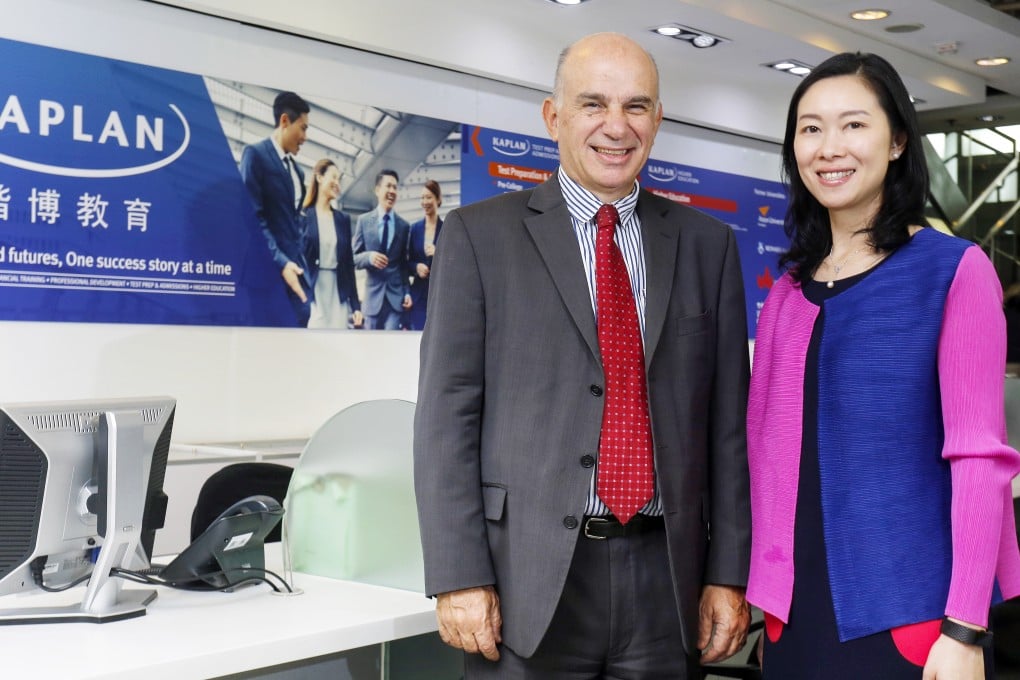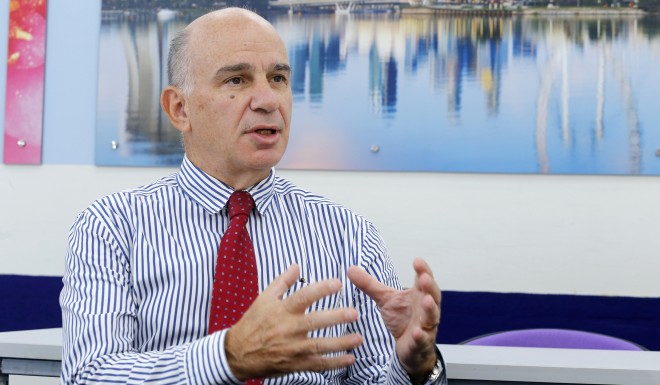Aston University DBA programme gives entrepreneurs and executives a brand new perspective
[Sponsored Article] The completion of a DBA programme can do more than just shining up your resume. Through their research work and the preparation of their own unique thesis, DBA graduates generate direct and new understanding of their chosen research fields and, in turn, the new knowledge they gain can transform their careers towards a new horizon.

[Sponsored Article]
The completion of a DBA programme can do more than just shining up your resume. Through their research work and the preparation of their own unique thesis, DBA graduates generate direct and new understanding of their chosen research fields and, in turn, the new knowledge they gain can transform their careers towards a new horizon.
Aston University, whose roots in the heart of England date back to 1895, has built its reputation on its world-class faculty and its strong links to industry and the professions. Accredited by AMBA, AACSB and EQUIS, the University’s Business School launched its highly successful DBA programme in 2001. Now Kaplan Higher Education (KHE) is bringing the programme to Hong Kong.
Since 1991, Kaplan Higher Education has been working with renowned universities from across the globe to provide tertiary education programmes and services in Hong Kong.
“We have more than 20 years of experience in running doctoral programmes,” says Ms. Rebecca Lui, Vice President of KHE Hong Kong. For the Aston Business School DBA, she adds, “Kaplan will be providing campus, logistics and programme management support.”
The combination of Kaplan’s track record in facilitating such programmes, and faculty from Aston Business School coming to Hong Kong to teach and supervise, means that candidates will receive a first class British education experience without the need to travel to the UK.
“This is an academic qualification in a professional context,” further explains Dr Geoff Parkes, the Associate Dean for International at Aston Business School.
Specifically designed from a very practical perspective, the programme is ideal both for senior executives from large corporations who are involved in planning or implementing major change, and for entrepreneurs trying to work out how to develop intellectual property into a marketable product or service.
During the course of their studies, Aston DBA candidates will learn how to use academic research tools to structure their complex thoughts and ideas and translate them into action that will achieve real, innovative and far-reaching results.

Most of the programmes’ candidates are seasoned professionals with over 10 years’ work experience. While academic research may not be their area of expertise, the first year of study provides training in sophisticated methodologies, as well as guidance and support from their supervisors as they refine their own thesis proposal.
Each supervisor works with up to seven candidates. Given the nature of Aston’s faculty, both supervisors and lecturers operate from both a practical and an academic perspective. “I spent 20 years as a marketing professional before I joined Aston, and most of my colleagues have come from practice,” Parkes says.
Regular meetings with their assigned supervisors, which are scheduled twice a year from year 2, are very helpful in ensuring students stay on track, he adds.
After their proposals are accepted, the candidates plunge into their research and writing. Though designed as a four-year programme, some candidates have completed it in three.
“This is a doctoral-level qualification, so you have to prove you’re making an academic contribution to practice,” Parkes says. “In other words, you’re discovering something or applying something in a way it has never been applied before in the real world of business.”
Ms. Rebecca Lui also advises that potential applicants applying for a place on this programme should first think carefully about the focus of their studies. “Candidates really have to decide on a topic they feel passionate about because this is a four-year journey,” she says.
She also suggests that prospective candidates have to make sure their organisation is willing to support their research work, in terms of providing access to any necessary data. Probably more significantly, given the extra hours they will need to devote to their studies in the evenings and at weekends, they should also ensure that their spouses and children are onboard with their decision. “It is very important they have the support of their family,” she says.

As an Aston Business School DBA graduate himself, Dr Parkes speaks from his experience when he said candidates should prepare for a challenge, albeit a very satisfying one. “There’s an academic rigour you can’t avoid, and you have to approach a DBA like a second job.”
When he enrolled in 2010, Parkes was working as a marketing expert and commercial finance broker. Around the time of the 2008 financial crisis, he began to wonder why in the case of funding propositions of similar merits, some entrepreneurs were able to obtain finance and others were unsuccessful.
“I found 60 entrepreneurs and I tracked them over a three-year period in a longitudinal study. I was able to prove those with more collaborative skills were more successful in getting finance,” he explains. “It’s about being intellectually curious but in a way that makes a meaningful difference in the real work”.
Reflecting on his DBA research thesis and what he had come through and gained, Parkes adds that, “this award is a recognition of your ability to recognise complex problems and be able to solve them innovatively using data.”
As an active academic, Parkes is very conscious of the utility of the research results. In his recent sharing with the prospective DBA candidates, he keeps reminding the audience that their research solution must have real rigour and understanding that can therefore, be relied upon.
It deserves a special note that because of his outstanding research results and the in-depth prior understanding of the marketing activities on the international level, Dr Parkes was promoted twice within 2 years after the graduation and joined the University for heading the Business School’s international activities. “The international student recruitment market is itself complex and undergoing rapid change in a sector that isn’t familiar with change to this extent.” Dr Parkes mentions how his DBA research has cast a deep influence upon his current job role at Aston University. “For a DBA graduate this is an ideal role – dealing with strategy but also the execution of plans, based on data with long term implications for the organisation.”
So, it is apparent that completing the DBA programme has sharpened Dr Parkes’ taste for academia. His appreciation of the qualities of the Aston Business School programme together with his successful past experience in the marketing and financial fields have cultivated for a unique perspective on his new job role.